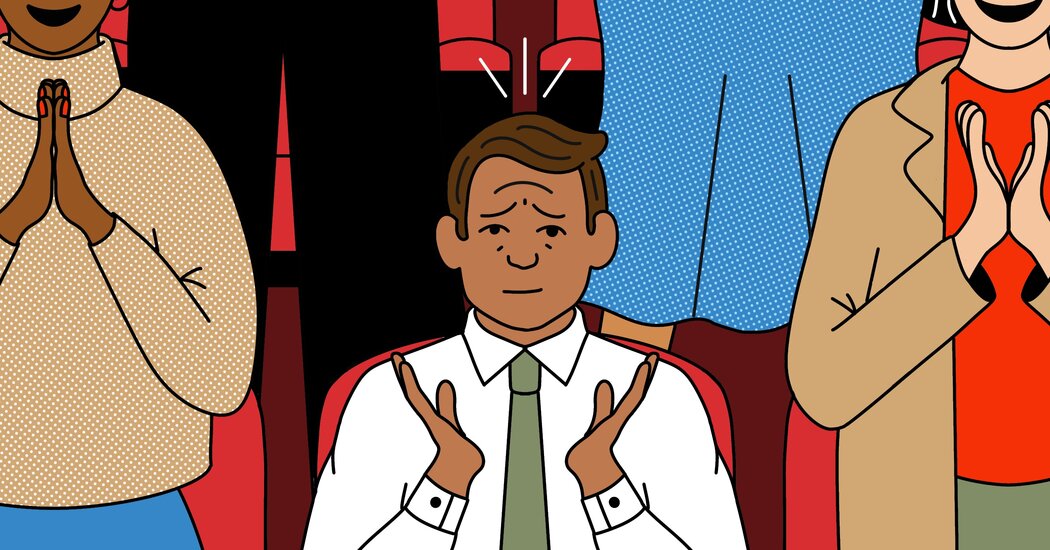
Theatergoers and other performing-arts lovers are noticing the practice seems to have become the rule, not the exception.
Do you have a question for our culture writers and editors? Ask us here.
Q: Are standing ovations expected now? It seems like every show or concert I’ve seen lately has ended with one.
First things first: You’re not imagining things. Standing ovations have become ubiquitous in recent years. They’re now so frequent that it often feels to me as if the audience members making a statement are those who choose to remain seated, rather than those who rise to their feet.
How common is this?
Standing ovations are nearly universal on Broadway, but a little more variable Off Broadway — more common for musicals than plays, more common for upbeat shows than those that end in emotional darkness, more common for those with younger audiences, who tend to be more demonstrative (and sometimes more spry).
The pattern seems to be similar in the classical music world. Zachary Woolfe, our classical music critic, tells me that standing ovations are now de rigueur at opera and symphony performances in the United States, but less so in Europe.
In other areas of the performing arts, ovations aren’t quite as frequent. Gia Kourlas, our dance critic, says it is rarer to see a whole crowd rise after a dance performance — although it does happen at particularly thrilling shows. Jason Zinoman, our comedy critic, says he doesn’t see ovations at comedy clubs, but that big-name comedians will get ovations when performing in theaters.
Why is it happening?
The act of applauding to signal approval goes way back. It’s not clear when standing ovations began, but they seemed to become more popular in the mid-20th century as a way of acknowledging remarkable performances, and they have become a more routine way of acknowledging performers at the end of a show.
We are having trouble retrieving the article content.
Please enable JavaScript in your browser settings.
Thank you for your patience while we verify access. If you are in Reader mode please exit and log into your Times account, or subscribe for all of The Times.
Thank you for your patience while we verify access.
Already a subscriber? Log in.
Want all of The Times? Subscribe.
